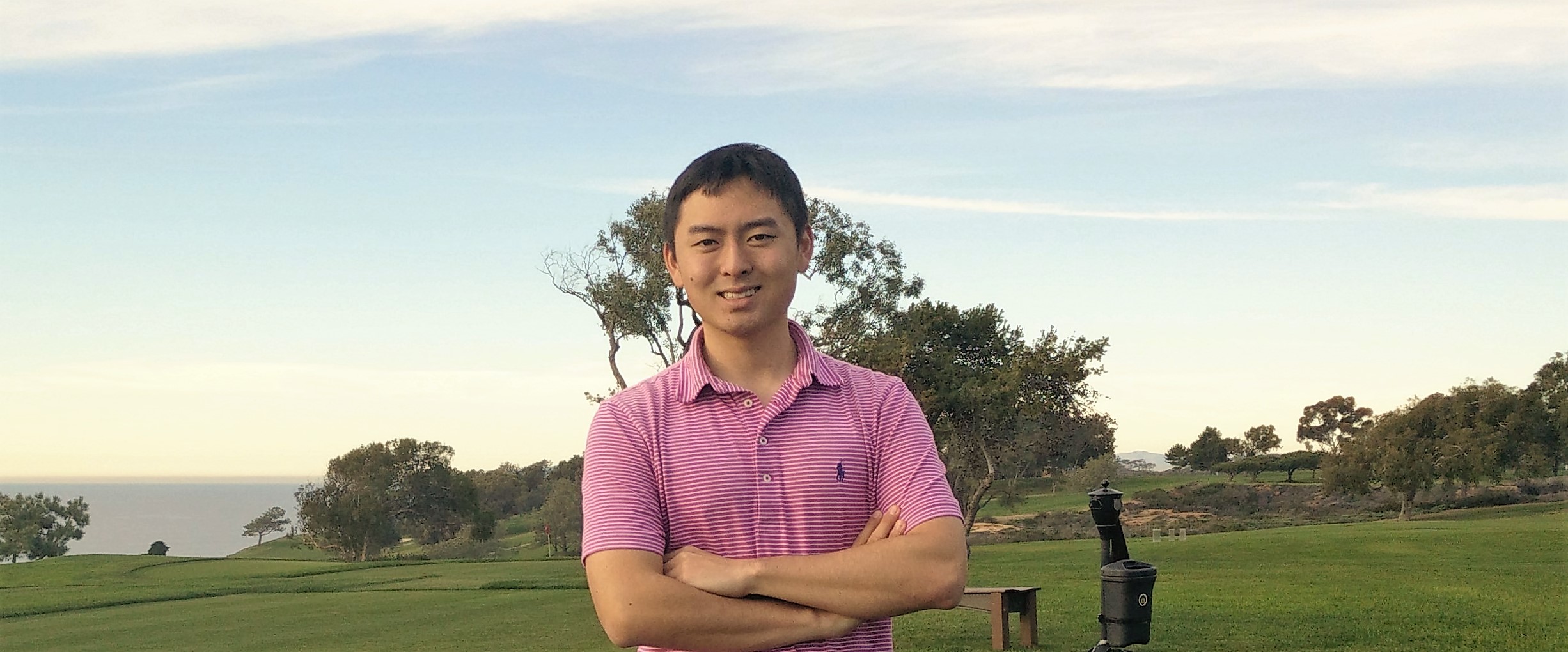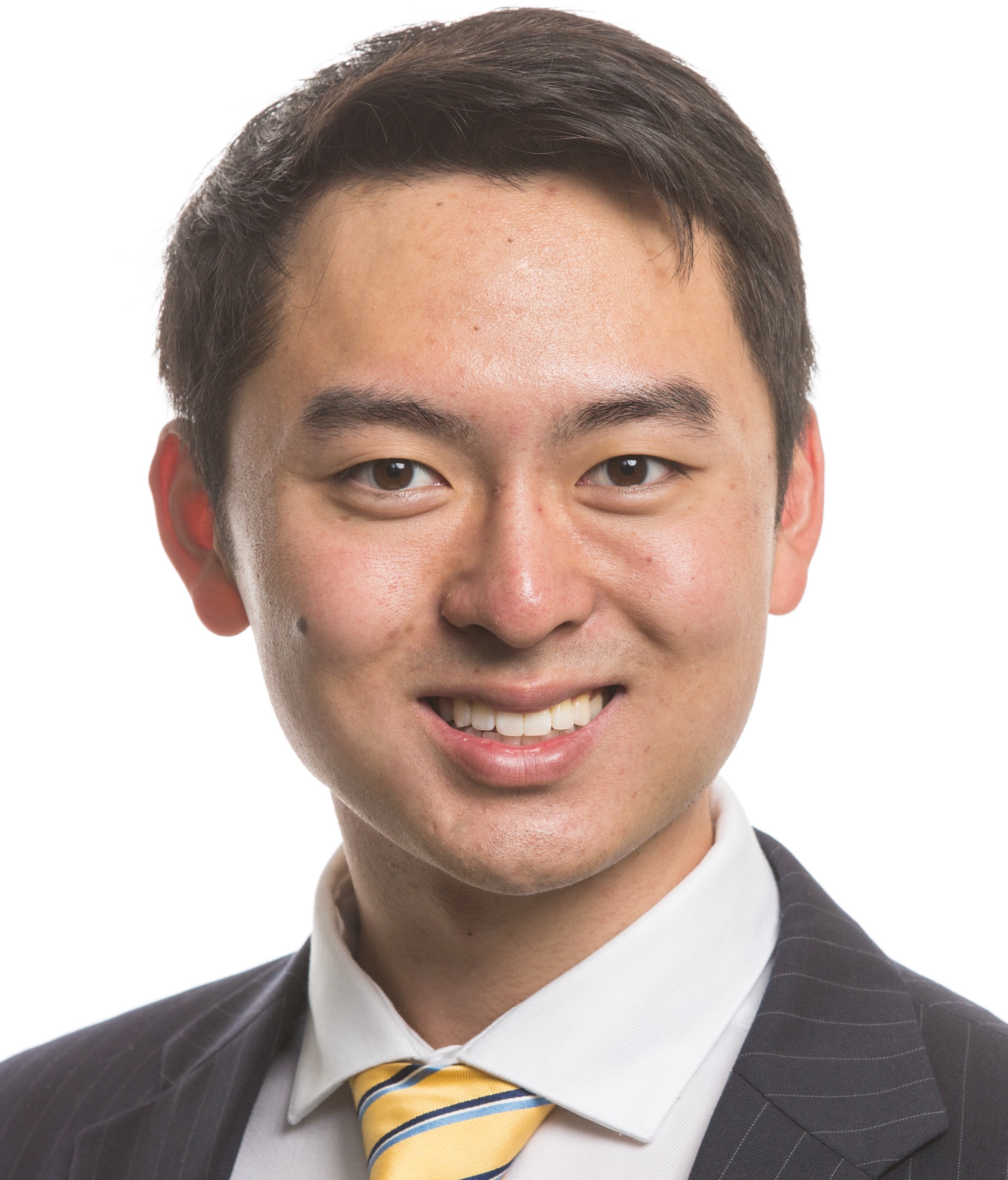
Scholar Elect Larry Han on top-level golfing and international research work.
Larry Han has always felt he had a dual identity – as Larry the top golfer and Larry the top student. He was a world-ranking junior golfing champion until an injury hampered his ability to play. Since then he has shown equal dedication to his research, working most recently in Malawi on the most promising malaria vaccine to emerge to date. It is therefore fitting that the research project Larry will be working on at Cambridge next year involves looking at the dual identity of Cambridge's local and world class research hospital, Addenbrooke's.
Larry will be doing an MPhil in Strategy, Marketing and Operations, working on the reorganisation of hospital care at Addenbrooke's, addressing how the hospital combines catering to patients requiring standard care and to those with more complex symptoms who require expert input. He will be working with Dr. Stefan Scholtes, Gillings Chair of Health Management.
He had deferred his MPhil for a year so that he can do a one-year Schwarzman Scholarship in China in public policy, once again focusing on public health.
Golfing and studying
Larry, who was born in Raleigh, North Carolina to first generation immigrants from China, spent much of his childhood on his passion for golf. He started playing with his father when he was seven years old and found he enjoyed it. “From the first time I went to a golf range I felt a special connection,” he says. “It felt right.” A good friend, who has since turned pro, also played and the two practised together for hours on end and all through primary and secondary school. He won a McConnell Golf Scholarship to practice and play at a number of golf clubs in the Southeast United States. Larry ranked high in many junior world championships and when he was 13, he won the American Junior Golf Association All-Star tournament.
At the same time he was a very able student. “I had this dual identity,” he says, " and it was never clear when I would have to make a decision either way. I felt I could do both and succeed in both.”
In 2008, though, when he was just 14 he developed a cyst on a nerve in his right wrist and was unable to flex his wrist. “It was very shocking,” he says. “I didn’t know what to do.” He had cortisone shots, but the cyst grew so big that he had to have surgery to remove it. The surgery went well and Larry was able to keep succeeding on the golf course. However, in 2011 the cyst returned, something that only happens in 10% of cases. He had surgery again. This time it didn’t go as well. A lot of scar tissue had built up and he lost some sensation in his right hand. “I sometimes feel very unlucky,” he says, “but in a way I was lucky because the decision about my future was made easier.”
He saw many different coaches and had therapy. “It was a highly emotional time and I did everything I could, but things had changed and there was no way for me to continue as I had before,” says Larry.
He was told he could still play at collegiate level, but he had trouble finding the same joy in the game he had had before. It became enormously frustrating playing against and losing to people he had once beaten.
Moreover, in his final year at high school he was offered the Morehead-Cain Scholarship to attend the University of North Carolina. The scholarship, the first merit scholarship programme in the United States, fully funds four years and four summers of study. “It was all that I wanted in my studies packaged into one, but it marked the end of my aspirations with golf. It was the right time. It opened a new door,” says Larry.
Infectious disease
He spent the first two years at university majoring in chemistry and anticipating a career in medicine. In his first summer vacation, as part of his scholarship programme, he took part in the UNC Project-China, a project of the University’s Institute for Global Health & Infectious Diseases aimed at improving health outcomes in China. He worked for 13 weeks in an HIV/STD clinic in Guangzhou, south east China, with a heavy focus on health prevention. It was his first exposure to working with infectious disease. There he worked with Professor Joseph Tucker who became his mentor through his undergraduate years. He did some research work, shadowed health workers in hospitals and worked in community-based organisations and on health prevention. While he was there he was still working on his chemistry and biostatistics research and due to the time difference with China he would often be up at 7am to talk to his principle investigator.
However, it was not until the following spring when he was on a placement at the National University of Singapore that he felt that maybe he wasn’t as interested in a career in chemistry as he had initially thought. “I felt I didn’t have the same passion for chemistry and medicine as some of my peers and I was more interested in public health,” he says. UNC has a highly ranked biostatistics programme. “I wanted to make an impact and I was in the right place at the right time,” he says. He switched focus.
His second summer, courtesy of his scholarship programme, was spent on research. He worked at the London School of Hygiene and Tropical Medicine doing diagnostics testing for HIV, TB and malaria. His third summer was linked to private enterprise and for that, he returned to his golfing roots and worked for the golfing section of a major sports consultancy, the Wasserman Media Group, working on areas such as player sponsor agreements and tournament sponsors. He helped to develop a new tool to assess the marketability of PGA Tour golf events which could determine which tournaments were worth sponsoring and how to assess player marketability. “It was a similar process to creating algorithms for medical purposes but with different outcomes,” he says.
Malaria
At UNC he has recently completed a research thesis working on phase three randomised control trials in Malawi, one of 11 study sites in Africa for the most advanced malaria treatment, the RTS,S vaccine. He travelled there earlier this year and met the study team and laboratory managers. The vaccine is now in its fourth phase which will follow over 1,600 children given the vaccine over a period of four years. Larry says: “Over 400,000 children die every year in sub-Saharan Africa as a result of malaria. The vaccine appears to have an efficacy of 40-50%. It is not as high as we would like, but it is promising enough for the World Health Organisation to write a policy paper saying they recommend that it be licensed by 2017. I have spent much of my senior year working on this and will continue to do so while I do my master’s. It’s a testament to how when academics, policymakers and the private sector in the form of GlaxoSmithKline and the Bill and Melinda Gates Foundation come together we can have a greater impact.”
Larry graduated in Public Health, Biostatistics and Chemistry this summer and will return to Guangzhou this summer to work for a social enterprise which aims to improve the lives of individuals at high risk of contracting HIV, such as sex workers, gay men and drug users.
When he finishes at Cambridge he will return to the US to Harvard where he will do a PhD in Biostatistics. He continues to play golf, but mostly with friends and mentors, including professors.

Larry Han
- Alumni
- United States
- 2016 MPhil Strategy, Marketing and Operations
- Gonville and Caius College
I am an Assistant Professor in the Department of Public Health and Health Sciences at Northeastern University. Previously, I was a postdoctoral fellow in Health Care Policy at Harvard Medical School, mentored by Professor Sharon-Lise Normand. Before that, I obtained my PhD in biostatistics at Harvard University working with Professor Tianxi Cai. My research focuses on developing novel statistical and machine learning methods for real-world data. At Cambridge, I completed an MPhil in healthcare operations and examined the drivers of the weekend mortality effect in NHS emergency departments. Before that, I was part of the inaugural class of Schwarzman Scholars at Tsinghua University in Beijing, China, completing a MA in global affairs. Previously, I focused my undergraduate studies in biostatistics and infectious diseases at the University of North Carolina – Chapel Hill. I co-lead an NIH-funded randomized controlled trial to improve sexual health delivery in China and studied the efficacy of the RTS,S malaria vaccine among children in Malawi. In the future, I aim to collaborate with global institutions to advance the field of biostatistics and health policy and develop tools to improve healthcare delivery.
Interests: Golf, basketball, tennis, reading history, debating politics
Previous Education
The University of North Carolina at Chapel Hill












